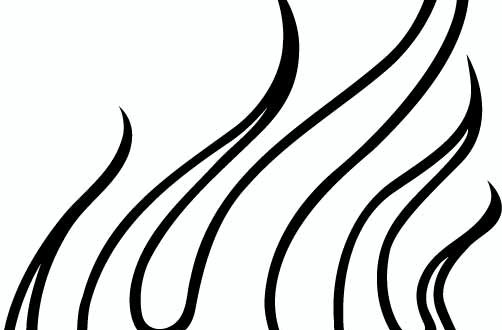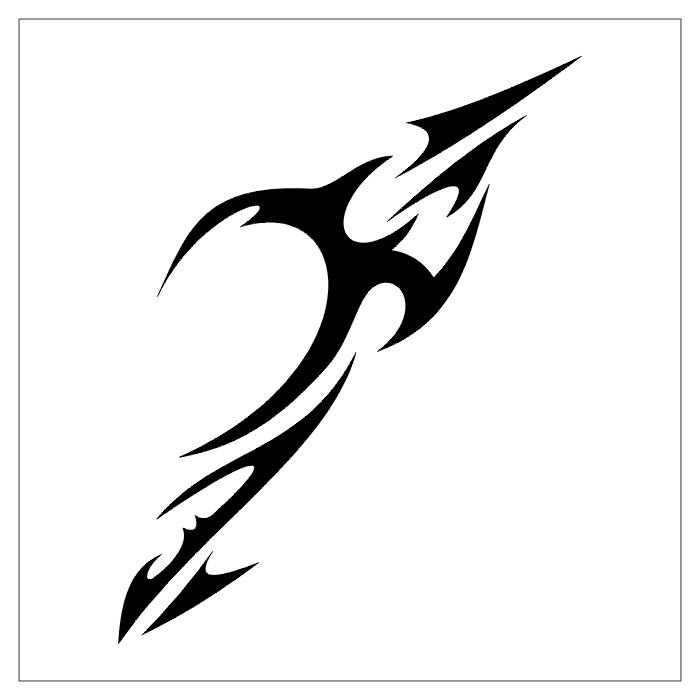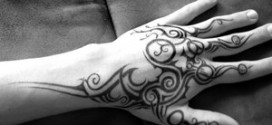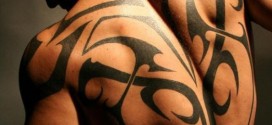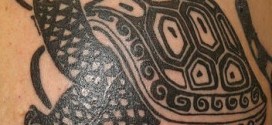Tribal” means a lot more today than it did fifteen years ago. The definition hasn’t expanded any, but people are trying to throw more and more design and black work tattoos into the category of tribal, unsuccessfully. A solid black tattoo isn’t necessarily tribal, in fact, a tribal tattoo doesn’t need to be black at all. And any design isn’t tribal. Any lacework design that is tattooed in black isn’t a tribal tattoo.
A tribal tattoo was a tattoo that actually designated what tribe you were in, or your status in that tribe. Sometimes the design was different for men than women, sometimes only men got it at all. It could be different if you were married than single. The thing is, it meant something that you understood if you were apart of the tribe, of that culture. What we think of as tribal probably comes from a poorly imitated Maori or other tribal community’s symbolic social structure.
We take designs from African tribes, Pacific Islander tribes, Hawaiian, etc., and we try to duplicate them on ourselves without any understanding of what it means, or the significance behind it. It would be similar to an Asian country putting random letters of our Alphabet on their body just because it looked good to them.
Tribal tattoos were also combined with scarification in many cultures and tribes. This was because there weren’t needles in many areas of the world in order to place the ink nicely into the skin. The person getting the design would have incisions made into the skin, and ash or soot rubbed into the cuts. This healed leaving a stained black or grey scar, having both texture and color.
For face tattoos, one should research the Maori culture. They have a beautiful and delicate symmetry to their facial designs. The tribal designs of this and other cultures had something that we lost when trying to adapt it to meet our own beauty standards. These cultures choose designs that they thought would look best on the body, that spoke to them, and complimented certain body types, and areas on the body. Today, we find some tribal flash and place it wherever we have room to fit it, disregarding contours of the body.
If we are to give respect to these cultures and honor them in our choices of body art, then it would be wise to spend some time researching their lives and art and relating it to our own. We should also not try to call any black tattoo we see a tribal, and water down it’s meaning any further.
The tribal tattoo morphed into something even more significant. Eventually, scenes were tattooed on the body depicting various battles that one may have taken part in. When loved ones passed, the symbol for their life such as an eagle or wolf would be tattooed on family members. But tribal tattoos were not just limited to Native Americans. Tattoos have been a part of human culture for many, many years, and the tradition has stretched from Africa, to New Zealand, to Europe. While each culture and group has their own distinct use and meaning for tattoos, the basic idea is the same. Tattoos are a permanent way of expressing oneself and identifying ones’ loyalties so that others may see. This process is still performed today, and the tribal symbols used in tattooing are even now a very popular choice.
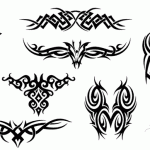 |
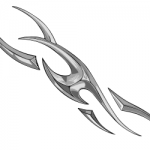 |
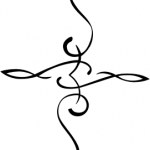 |
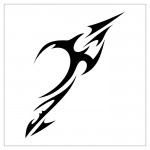 |
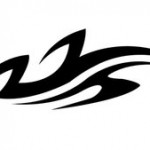 |
 |
 |
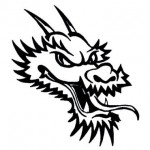 |
 Tattoo Fonts For Women and Women Tattoo Fonts Gallery For Men and Women
Tattoo Fonts For Women and Women Tattoo Fonts Gallery For Men and Women
